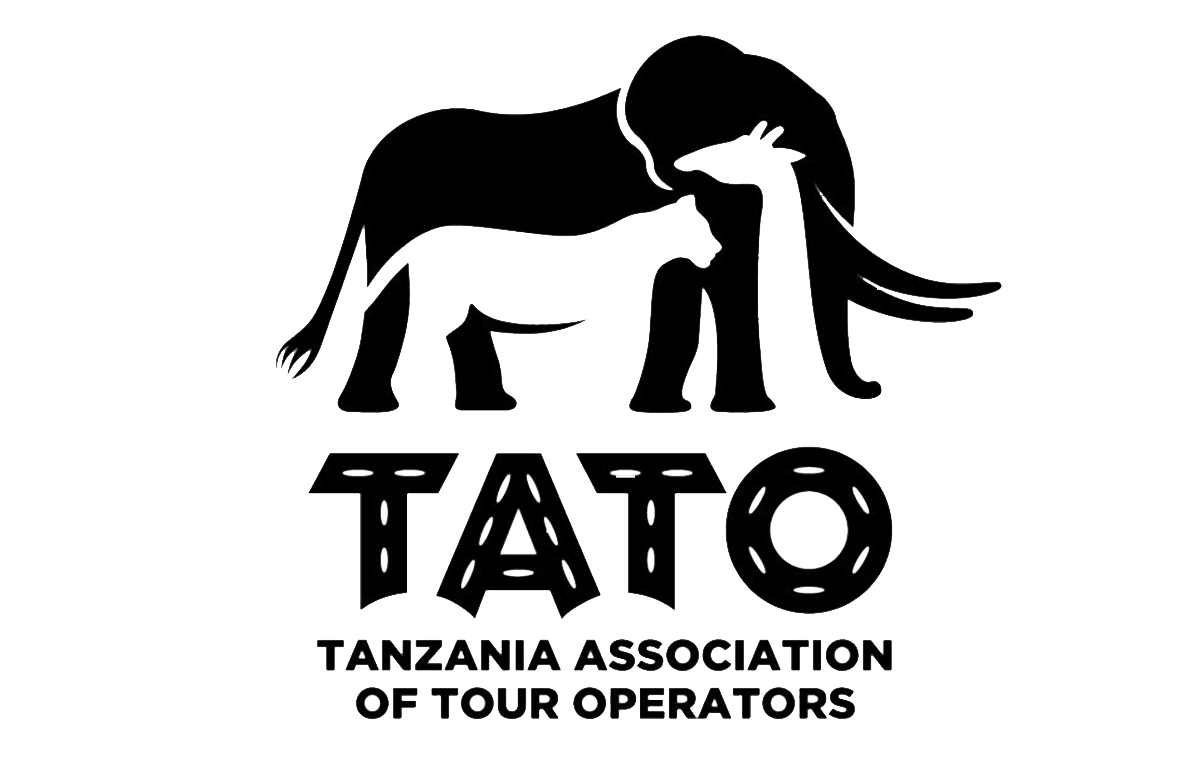Technology and New Knowledge to Address Conservation Challenges
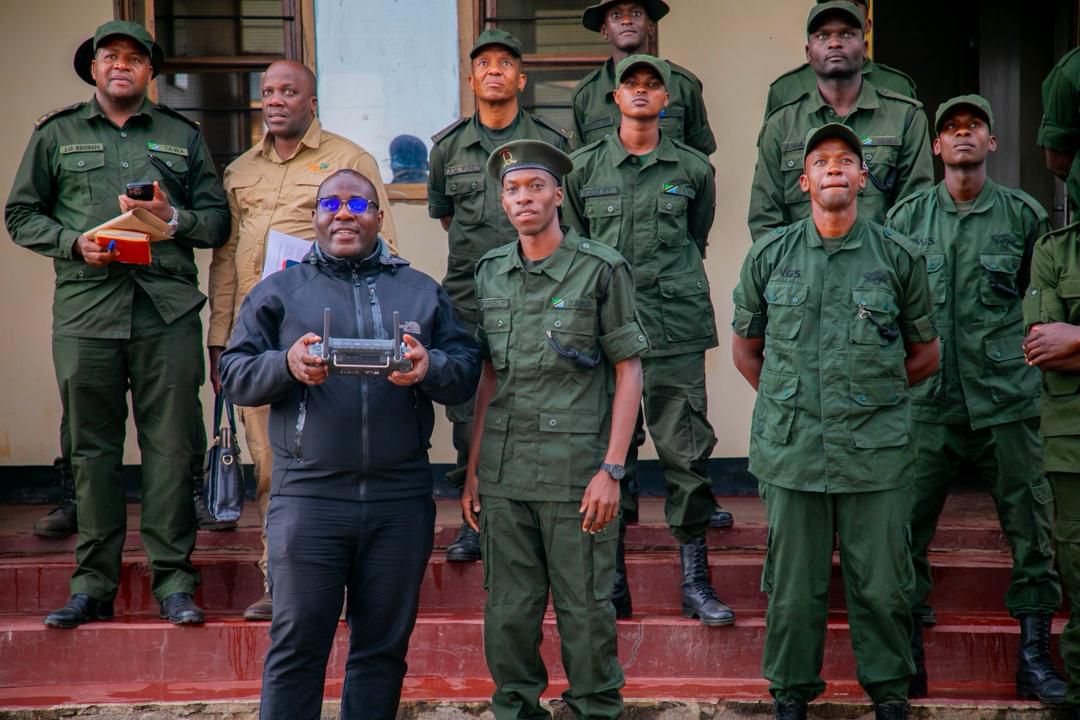
In a major step toward strengthening wildlife conservation and enhancing human-wildlife coexistence, the Permanent Secretary of the Ministry of Natural Resources and Tourism, Dr. Hassan Abbasi, has announced the adoption of modern technologies and innovative knowledge systems to address the growing challenges of dangerous and destructive animals across Tanzania.
Dr. Abbasi made the remarks on October 6, 2025, during his field visit to Malwilo, Meatu, and later Itilima District in Simiyu Region areas that have recently experienced increased incidents of human-wildlife conflict. The visit formed part of an ongoing special operation aimed at equipping wildlife officers with advanced technological tools to respond swiftly and safely to such challenges.
Advancing Conservation with Technology
At Meatu, Dr. Abbasi officially handed over drones and received a detailed report on the installation of seven wave-tracking sensors used to monitor elephant movements and patterns. These innovations will enable real-time tracking of elephant herds, allowing conservation officers to respond proactively before animals encroach on community lands.
He further announced the deployment of cold bombs, non-lethal deterrents, designed to safely repel elephants and other wildlife from villages without harming them. The use of these devices reflects Tanzania’s growing commitment to humane and science-based wildlife management.
Meanwhile, in Itilima District, the Ministry conducted a targeted operation addressing persistent attacks by hyenas, which have caused significant fear and loss among local communities. Dr. Abbasi commended the officers and rangers for their bravery in protecting both people and wildlife, emphasizing that conservation success depends not only on technology but also on strong collaboration with the public.
He noted that in Itilima, where hyenas have been causing distress to both people and livestock, the Ministry has deployed a special mixed team of rangers equipped with modern tools such as drones, patrol motorcycles, and cold bombs. He urged continued cooperation with local communities and traditional elders to effectively end this challenge.
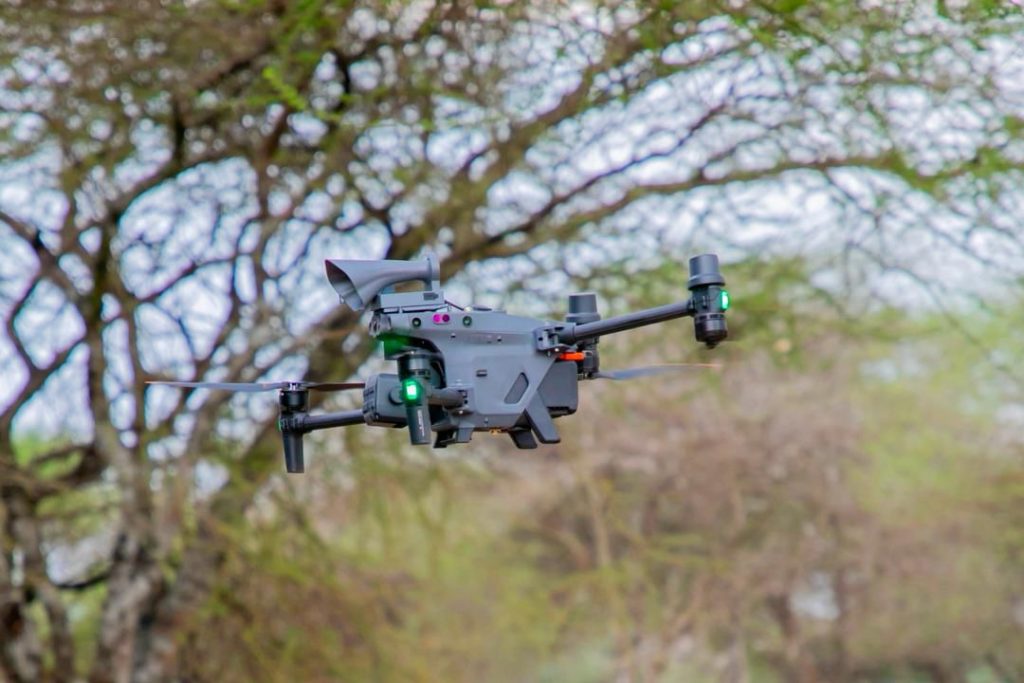
Rethinking the National Strategy on Human-Wildlife Conflict
Dr. Abbasi also revealed that the Ministry of Natural Resources and Tourism is currently reviewing the National Strategy for Managing Dangerous and Destructive Animals, incorporating new technologies and data-driven approaches.
This renewed strategy aims to integrate scientific knowledge, traditional wisdom, and digital innovation to create more adaptive and preventive conservation methods. It also aligns with Tanzania’s broader vision for sustainable tourism, which prioritizes environmental stewardship and community welfare.
By leveraging drones, GPS collars, acoustic sensors, and real-time data analytics, conservation authorities will be able to:
- Predict wildlife movement patterns more accurately.
- Respond faster to potential human-wildlife conflicts.
- Reduce fatalities and economic losses in rural communities.
- Enhance data collection for long-term conservation planning.
The Role of TATO in Supporting Responsible and Technology-Driven Conservation
The Tanzania Association of Tour Operators (TATO) welcomes and applauds these initiatives as a progressive milestone in the country’s conservation journey. As the umbrella body representing licensed tour operators, TATO has long advocated for innovative, ethical, and sustainable approaches to wildlife management, recognizing that conservation success directly underpins Tanzania’s tourism industry.
TATO’s efforts complement government initiatives through multiple ongoing programs:
1. Advocacy for Conservation and Community Safety
TATO continuously engages with the Ministry of Natural Resources and Tourism (MNRT), Tanzania National Parks (TANAPA), and other conservation bodies to ensure that policies reflect both wildlife protection and human welfare. By supporting the Ministry’s adoption of modern technologies, TATO reinforces its commitment to ensuring that conservation remains effective, humane, and economically sustainable.
2. Public Awareness and Capacity Building
Through workshops, awareness campaigns, and collaboration with local communities, TATO encourages education on coexistence practices. Communities living near national parks and game reserves are trained on how to report animal sightings, use deterrent techniques, and protect livestock safely, reducing retaliation killings and fostering a culture of stewardship.

3. Partnerships for Conservation Innovation
TATO has also been an active partner in the Serengeti De-Snaring Programme, conducted with the Frankfurt Zoological Society (FZS) and TANAPA. This project has successfully removed thousands of snares and rescued hundreds of wild animals, showcasing how technology and partnership can restore ecological balance. Similarly, TATO envisions collaborating with the Ministry and conservation stakeholders to expand the use of drones, sensors, and data monitoring systems in other ecosystems prone to conflict.
4. Sustainable Tourism Advocacy
TATO promotes responsible tourism practices that directly contribute to conservation funding. Every tourist visit to parks like Serengeti, Ruaha, or Nyerere helps finance conservation projects, ranger patrols, and anti-poaching operations. The Association encourages its members to reinvest part of their proceeds in community outreach programs and wildlife management projects, creating shared value between tourism and conservation.
Linking Technology to Tourism Sustainability
The tourism industry depends on thriving ecosystems and secure communities. The introduction of drones and sensors to track wildlife movements is not just a conservation initiative, it is also a safeguard for tourism investment.
Wildlife-related challenges such as crop destruction, livestock predation, and human attacks can lead to community resentment, ultimately threatening the very existence of protected areas. By preventing such conflicts, Tanzania ensures that both tourists and local residents benefit from peaceful coexistence.
Moreover, the use of cutting-edge conservation technologies enhances Tanzania’s global reputation as a leader in innovative, sustainable tourism. International travelers are increasingly drawn to destinations that demonstrate responsible stewardship of natural resources. With these technological interventions, Tanzania not only protects its wildlife but also strengthens its branding as Africa’s premier eco-tourism destination.
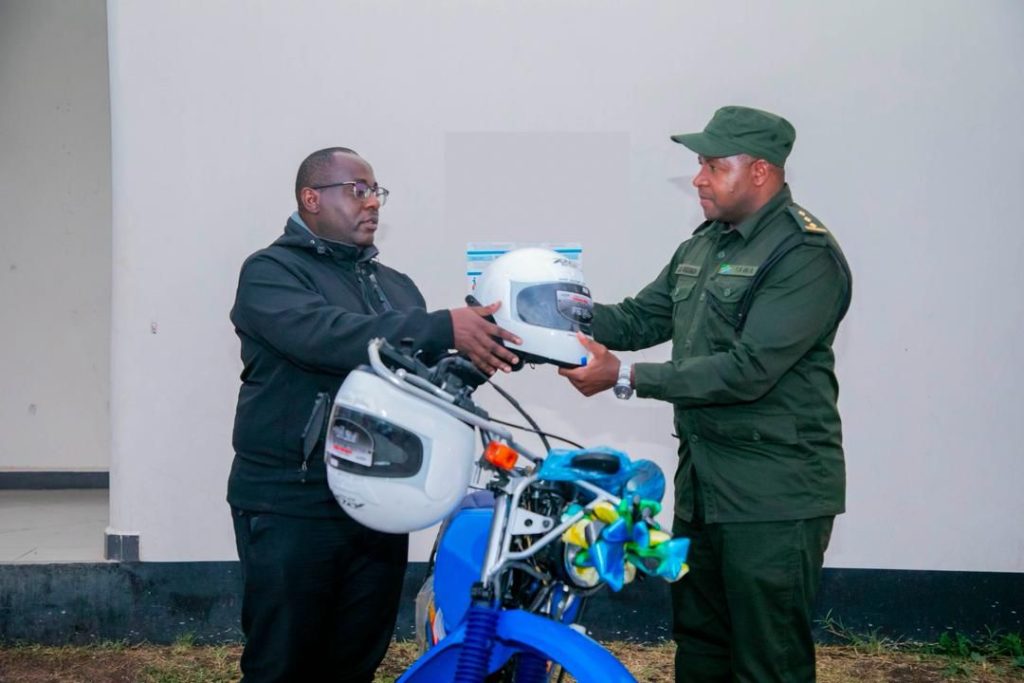
Collaboration with Local Communities
Dr. Abbasi emphasized that technology alone cannot solve conservation challenges. Lasting success depends on the involvement of local communities, elders, and traditional leaders. In areas such as Meatu and Itilima, where wildlife corridors overlap with pastoral and farming lands, residents are both victims and partners in the conservation effort.
The Ministry’s decision to blend modern tools like drones with community participation represents a balanced approach that acknowledges cultural knowledge and local resilience. TATO, through its community tourism initiatives, echoes this philosophy, ensuring that conservation brings tangible benefits to people, from job creation to education and eco-enterprise development.
National Vision and Policy Alignment
The government’s renewed focus on technology-driven conservation aligns with Tanzania’s long-term development blueprint, Vision 2050, which identifies tourism and conservation as key pillars for achieving inclusive economic growth.
By adopting new technologies in wildlife management, Tanzania is demonstrating its readiness to adapt to global standards and to integrate innovation into sustainable development. The initiative also supports the goals outlined in Tanzania’s National Tourism Policy, emphasizing safety, efficiency, and environmental protection as essential for a competitive tourism sector.
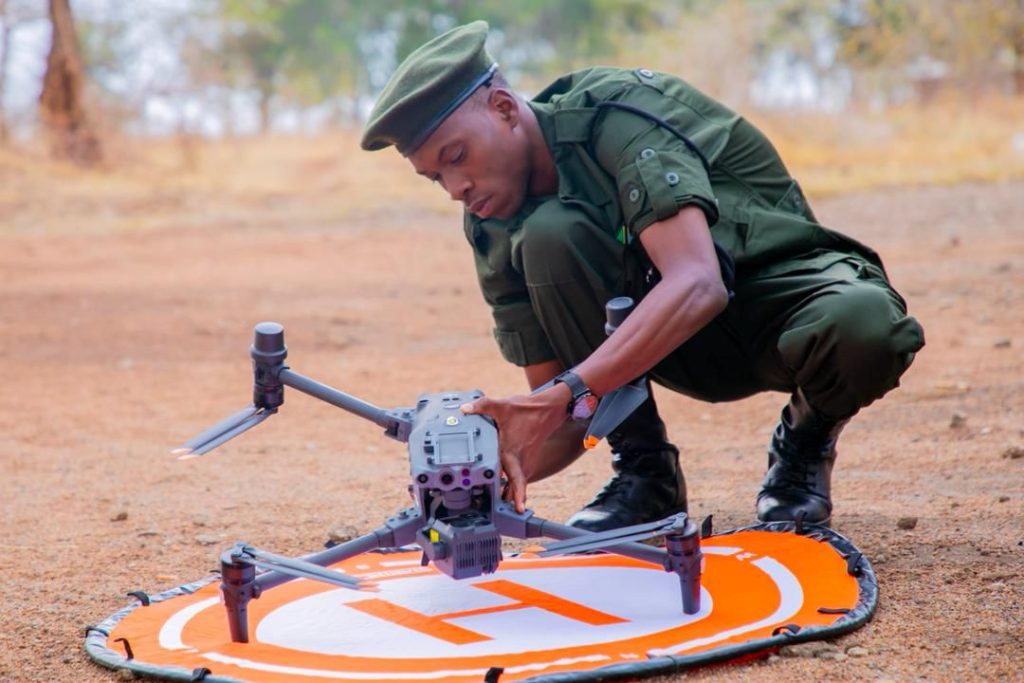
Final Remarks
The deployment of modern technology and new knowledge to address human-wildlife conflicts marks a transformative chapter in Tanzania’s conservation and tourism landscape. Through initiatives like drone monitoring, wave-tracking sensors, and humane deterrent systems, the Ministry of Natural Resources and Tourism is taking bold steps to protect lives, wildlife, and livelihoods.
The Tanzania Association of Tour Operators (TATO) stands in full solidarity with this vision. As the voice of the private tourism sector, TATO reaffirms its commitment to supporting government-led conservation innovation, promoting responsible tourism, and investing in education and awareness to ensure harmony between people and nature.
“Technology alone is not the solution, partnership is,” noted a TATO representative. “By combining innovation, policy support, and community participation, Tanzania can become a model of coexistence and sustainable tourism in Africa.”
As Tanzania continues its journey toward inclusive, technology-driven conservation, all stakeholders, from tour operators to communities and policymakers, must unite to preserve the natural treasures that make this nation one of the world’s most exceptional wildlife destinations.
